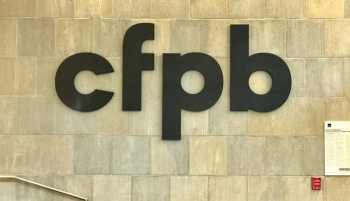Trade Groups Urge CFPB to Consider Small Firms in Proposed Rule
Group says banks and fintech firms will struggle with changes to personal financial data rights
- |
- Written by Banking Exchange staff

A trio of trade associations have urged the Consumer Financial Protection Bureau (CFPB) to reconsider its framework for safe and secure consumer-permissioned data sharing.
In October, the CFPB introduced a proposed rule to implement Section 1033 of the Dodd-Frank Act, which requires businesses to make consumer’s financial information available to them.
The CFPB aimed to accelerate the shift towards open banking as well as ensure consumers have control over their financial data and gain new protections against companies misusing their data.
However, the American Fintech Council, Community Development Bankers Association and Americans Bankers Association have urged the CFPB to consider the “unique position” of small banks and fintech firms in complying with the requirements outlined in its proposed rule.
In a letter to the CFPB, the coalition said the “tangled spiderweb” of overlapping laws and existing entity solutions renders the challenge “especially arduous” for smaller banks and fintech firms.
They also said the technical complexity of Section 1033 operationalization and the need to understand the context of the ecosystem’s historical development provided further difficulties.
According to the groups, many of their members have demonstrated unfamiliarity with some of the core concepts in consumer-permissioned data and how to implement the CFPB’s requirements.
The trio added several sections of the proposed rule are unclear and inconsistent in the abstract, therefore small banks and fintech would benefit from practical implementation advice.
In the letter, the trade groups said: “While it is probable that the CFPB will incorporate stakeholder feedback as it finalizes the rule to reduce the ambiguity, additional steps are necessary to ensure an effective rollout that limits disruptions to consumers.”
Tagged under Consumer Credit, Compliance, CFPB, Customers, Compliance/Regulatory, Consumer Compliance, Duties, Feature, Feature3,











